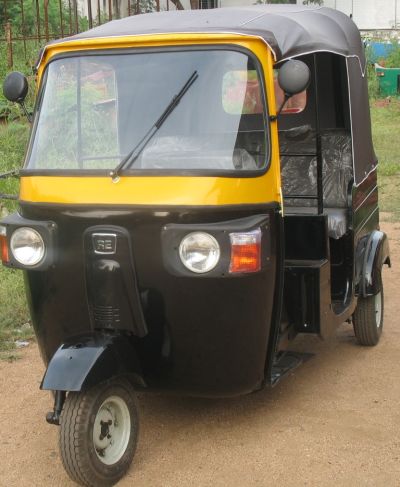Tricycles or “Tok Tok”, as they are widely known in Egypt, have become an inevitable nagging part of our daily life. Whether you live in a posh area or in a more popular neighborhood, you cannot help but noticing tricycles everywhere. Not only are they dangerous as you have to have a fisheye while crossing the streets for instance, but they are utterly polluting our environment.

Tok Toks are a cheap means of transportation used by a lot of people where other decent means are not available, and where people can pay just one pound to go wherever they want. They have also become a primary source of income for many families, breadwinners and even children. However, and due to their rising number that could be attributed to their accessibility and cheapness, Tok Toks represent a real threat to our well-being.
Such an issue exists, surprisingly, in many other countries, especially in third world countries such as the Philippines. The Filipino Government has taken a serious initiative to address the “Tricycles” issue by finding a better substitute that is more eco-friendly. In fact, the Asian Development Bank has announced, in December 2012, that it would be providing 300 million dollars to replace 100,000 gasoline burning tricycles in the Philippines with clean-energy, efficient electric tricycles.
.jpg)
Not only will this endeavor help decrease pollution, but it will also help the Filipino Government save more than 100 million dollars per year by decreasing fuel imports. According to Sohail Hasnie, Principal Energy Specialist at ADB South-East Asia Regional Department, E-Trikes are such a beginning for many similar environmental-friendly endeavors that will lessen pollution in the Philippines. “We will not stop at e-trikes. E-trikes will expand horizontally to other transports,” Hasnie says. The project is planned to run for five consecutive years with a completion date set in December 2017.
Watch this video to learn more about the Filipino electric tricycles, and let us hope to witness a similar Egyptian eco-friendly initiative.
References